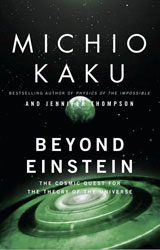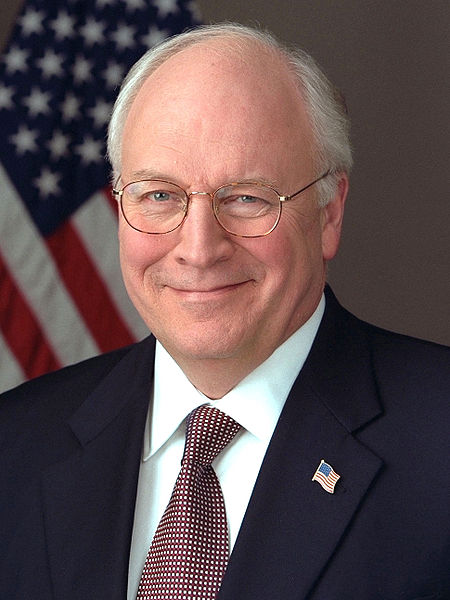Pianist Hilda Huang, 14, visited Big Think today to tell us about her love of the music of Johann Sebastian Bach. In March she became the youngest person ever to […]
All Articles
When Jill Tarter was growing up, she remembers walking along the beach with her father, gazing up at the night sky. Well before she would become a leader in the […]
A 22-year-old U.S. intelligence analyst has been arrested for allegedly giving classified combat footage of a U.S. helicopter crew killing civilians to Wikileaks, an online repository of leaked documents. The […]
Britain’s Prime Minister, David Cameron announces today that deep cuts in public expenditure “will change British life”. They will in short be the most drastic public spending cuts in a […]
Gary Becker and Richard Posner weigh in on African development, which has weathered the current economic storm better than any advanced economy. Will Africa finally take off?
“Is a world with people in it better than one without?” asks Peter Singer of Princeton. How do we justify brining new human life into the world amidst so much suffering and unprecedented crises?
Those who worry that the Internet promotes mediocrity should consider the printing press, says Clay Shirky: pulp writing accompanied peer reviewed science and booming literacy rates.
The bad name given to corporate oversight, i.e. government regulation, deligitimizes its role in society and makes ready financial crises; among other things, regulators deserve more pay.
In our world of infinite and instant information, learning one skill deeply could equip us with critical thinking tools necessary to cope with our times, which change faster now than ever.
The Guardian contests the stereotype that Americans are ignorant of history but, the English paper believes, contemporary conservative movements do appropriate the past for political gain.
The successful launch of a private rocket into outer space, which could one day take tourists on suborbital flights, comes just as the U.S. government makes deep cuts at NASA.
Former CIA station chief and director of counter-terrorism, Robert Grenier says peace efforts in Afghanistan demonstrate a house divided against itself — an open ended civil war could follow.
Scientists are working to rule out non-biological explanations for conditions present on Titan, a moon of Saturn, that suggest there could be life on the moon’s surface.
European soccer scouts look to Africa for budding talent because players there “are young, technically adept, athletic — and cheap.” Is this a modern day slave trade?
The bipolar extremes of American politics—red states, blue states; with us or against us; cut and run or victory; capitalism or socialism—have now divided Islam into two separate categories. There […]
My book “Beyond Einstein” takes readers on an exciting excursion into discoveries that have led scientists to the brightest new prospect in theoretical physics today–superstring theory. Simply answer the statement below […]
Central America’s employment of low-skilled workers could not withstand a fully developed Chinese labor market where agricultural mechanization would spur mass migration to cities, reports The Guardian.
The New York Times magazine profiles squatters and freegans who have taken advantage of the many housing foreclosures in Buffalo, NY and how they’ve earned their neighbors’, and the law’s, respect.
More doctors are giving consultations online as technology enables convenient patient-doctor exchanges on minor medical issues; the trend is saving everyone time and money.
Rob Reynolds recalls the Santa Barbara oil spill of 1969, how business leaders were more coarse at that time, and how reaction to the spill fed a fledgling American environmental movement.
Nicolas Carr tells The Atlantic that the Internet has changed our way of life, sometimes for the worse. Today we are a distracted and anxious society because of our voracious appetite for information, Carr says.
Instead of reacting to the Sunday morning political shows, I figured I’d beat them to the punch. “Cheney’s Katrina” has a nice ring to it. All the guests seem to […]
The New York Review of Books continues to host the dialog between Peter Beinart and Abraham Foxman over how much support Irsael is receiving from a new generation of American Jews.
What are natural laws? How do scientists test them? Is time illusory or real? Do black holes make the universe expand? These questions were posed at a recent workshop for philosophers and physicists.
America’s long-term influence depends on its defense of an open, global society, writes The Economist: America must build a society that welcomes immigrants as well as trade.
Examining the brains of deceased alcoholics who smoked, researchers found drinkers who also smoked derived more pleasure from each activity individually, making both harder to quit.
“Americans like to see themselves as rugged individualists, a nation defined by the idea that people should set their own course through life,” but in reality we embrace group membership.
Oil leaking from a British Petroleum pipe under the sea floor in the Gulf of Mexico has reached land slicking wildlife habitats on the Southern U.S. coast, as well as […]
Childbirth may be the miracle of life, but its practical reality is grounded in a set of rather utilitarian necessities that ensure the mother and baby’s health and survival. While […]
As a shock jock radio DJ, Glenn Beck called his rival’s wife to make fun of her recent miscarriage on the air. It’s that humanistic spirit that suffuses Beck’s broadcasting […]









